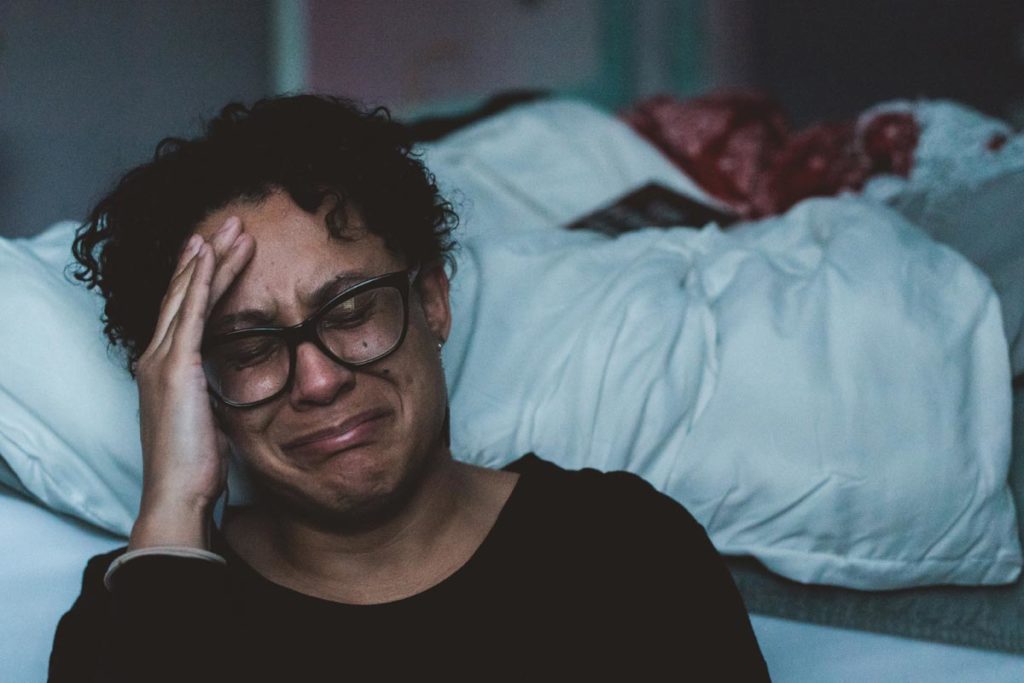The United States population is 76.3% white, according to the U.S. Census Bureau, the other 23.7% of the population are comprised of Black or African American, Hispanic or Latinx, Asian, and indigenous populations. All the latter experience varied and sometimes extensive racism, which affects your experiences, your life, and every aspect of your social interactions. That naturally greatly impacts mental health, with effects ranging from increases in general anxiety to full panic disorders or substance use disorders.
Racism manifests as stereotyping, as discrimination, and as hate crimes. It is intensely harmful in any form, because it harms the sense of self, increases rates of violence, reduces access to resources and help, and reduces your ability to trust the systems put in place to help.
Stress and Economic Stress as Contributors to Mental Health Problems
Across the United States, 1 in 7 Americans live below the poverty line. But, when you look at people of color, that is more likely to be 1 in 5. That becomes more relevant for indigenous Americans who have significantly higher rates of poverty, but reflects circumstances of reduced opportunity, lower self-worth relating to stigma and internalized racism, and reduced social support from local government. Most importantly, that economic status doubles the likelihood of significant psychological distress and mental health problems. If you live below the poverty line and are not white, you are more than twice as likely to have a mental health disorder.
Stress, which is unrelated to economic condition but rather to social condition (bullying, being left out, being followed at stores, being unable to seek police for support, having to strictly govern behavior to prevent violence to the self, etc.) are also considerably damaging. Stress is considered the single largest contributing factor to mental health problems, including substance use disorders.
Traumatic Events and Generational Trauma
In one study sampling the mental health of over 4,000 households containing ethnic minorities, individuals who had experienced a direct act of racial discrimination were immediately and directly negatively affected, with measurable reductions in confidence, self-assurance, and self-esteem. Chronic exposure to discrimination resulted in reduced sleep, altered cortisol patterns (increased stress), and coronary artery calcification (increasing risk of heart disease and heart problems).
Traumatic events also greatly increased the rate of mental and physical health problems. For example, in one review of over 293 studies, it was found that individuals experiencing discrimination were 23.95% more likely to experience a mental health problem than individuals with the same social and economic background (age, sex, birthplace, education level, family size) who did not experience racism.
Most importantly, those stresses also become generational, as parents pass experiences, internalized racism, and poor self-esteem onto children. This results in higher base levels of anxiety and stress – before children report directly noticing racism.
This discrimination and trauma directly negatively affect individuals’ mental health in multiple ways:
- Self-Esteem and Self-Image – It’s difficult for anyone to live in a society without internalizing the beliefs of that society. If racist doctrines constantly tell you that you are worth less because of the color of your skin, you may internalize it. This creates its own level of trauma. Further, racism and discrimination erode your self-esteem, your confidence, and your enjoyment of social events – eventually, this erodes your baseline of mental health, making you more vulnerable to mental health disorders.
- Traumatic Events – Racism directly contributes to post-traumatic stress disorder, in which the body produces high levels of cortisol and you become stuck replaying moments of high stress and trauma. PTSD is typically caused by moments in which you lose control, especially over life and death. For example, if someone tries to run you off the road, if you experience a hate act, or if your family or loved ones experience a hate act.
Anxiety – if you constantly experience negativity on leaving your hours, its normal that you would become anxious about it. This might include microaggressions like whites refusing to sit next to you, racist jokes, white people keeping a tighter hold on belongings, to being accused of spreading disease, to being told to speak English or to go back to your country – are incredibly harmful, stressful, and anxiety inducing. If you have to deal with an environment that is harsher, crueler, and requires more emotional patience and understanding to navigate, you are more likely to struggle with mental health problems. Acknowledging that and moving forward with the understanding that you are in a position of high stress is important to moving forward.
Get your question answered now.

Prejudice and Stereotyping in Treatment and Diagnosis
While people of color are more likely to experience traumatic and stressful events or situations, they’re also less likely to get help. That stems from less availability in resources (11.5% of people of color don’t have insurance under the Affordable Care Act versus 7.5% of whites), but also to prejudice.
- Rates of not receiving treatment for mental health problems are more than 8% higher for people of color
- Black teens are more than 40% more likely to attempt suicide than white teens with the same economic background
- People of color are more than twice as likely to be denied testing or treatment than whites
- Prejudices directly affect diagnosis. For example, individuals of Asian descent are considerably less likely to be diagnosed with alcohol use disorder. African Americans are considerably more likely to be diagnosed with schizophrenia than whites presenting the same symptoms and are more likely to be proscribed harsh treatment.
Essentially, racism and prejudice extend to treatment and support networks. That means it’s harder to get mental health support, harder to get treatment, and harder to find safe treatment where you won’t experience the same prejudice. That’s especially true considering that just 2% of the American Psychology Association is made up of persons of color.
Getting Help
Nearly a quarter of the U.S. population has to deal with daily racial disparities including microaggressions, violence, stereotypes, and inequalities in legal and social settings. Doing so means you are more vulnerable to mental health disorders, at a high risk of having a major mental health problem when something does go wrong, and that you will have a harder time seeking out mental health treatment through your normal providers.
Seeking out mental health treatment should always mean looking for a program designed around your needs, which means your experiences of culture, society, and racism. Often, that means finding a program led by psychologists or counselors sharing a racial background with yourself, looking for programs specifically designed to support trauma and stress related to racism, and checking that your mental healthcare provider acknowledges and is combatting the effects of racism in mental health treatment.
If you need help with mental health, Compassion Recovery Center is here to help. Contact us to ask about our mental health programs, mental health treatment, and how we can support your specific requirements as you move into treatment.









